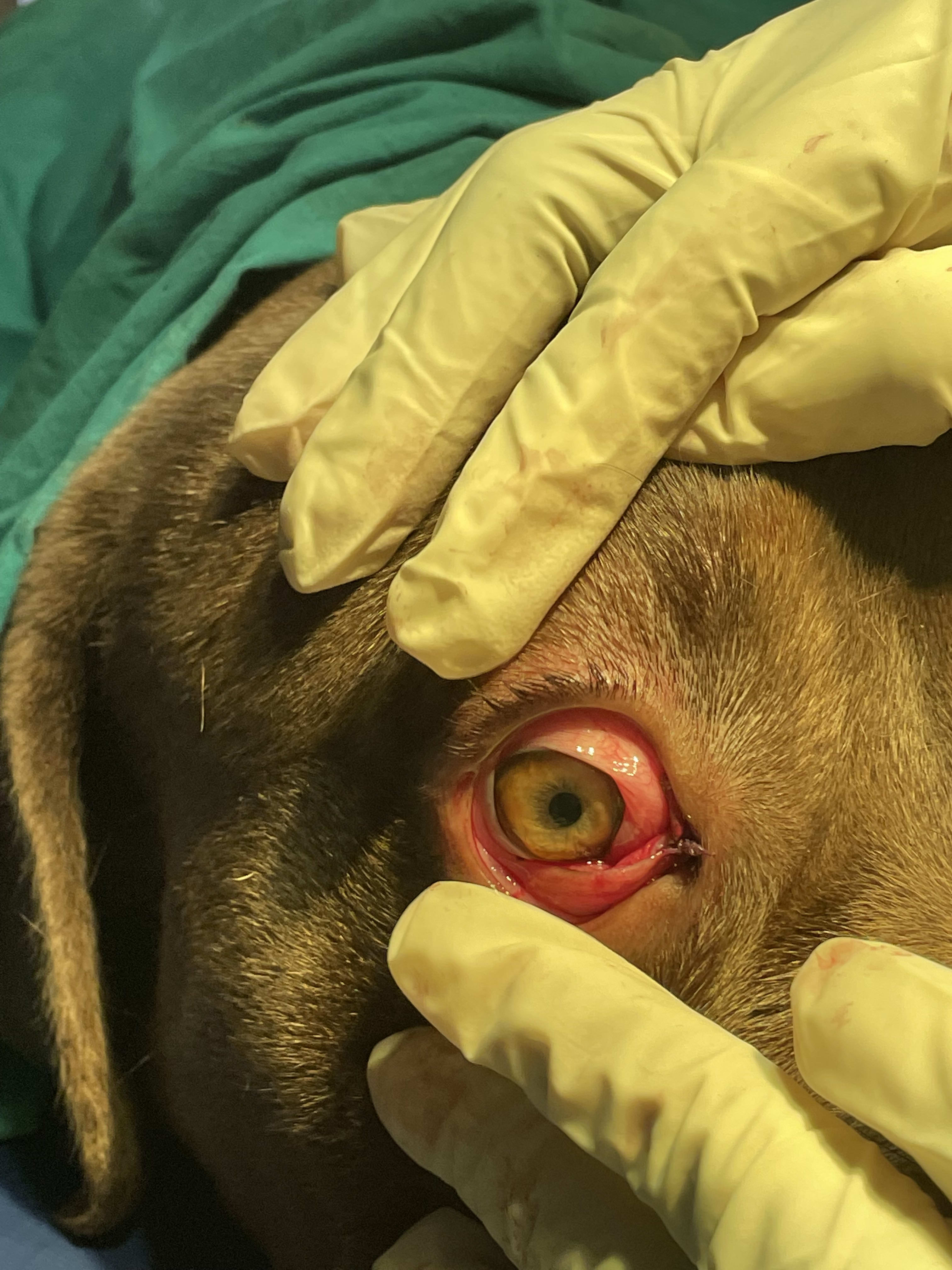Livestock
Problems Facing Livestock Farming In Nigeria And Possible Solutions
Livestock farming in Nigeria plays a vital role in the nation’s economy and food security. It provides meat, milk, and eggs to millions of households while offering jobs to farmers, traders, and processors across the value chain. However, the sector faces numerous challenges that limit its potential to meet growing demand. Mygotovet recognizes that addressing these problems is essential for transforming livestock farming in Nigeria into a profitable and sustainable enterprise. Understanding these issues and finding practical solutions is the first step toward building a resilient livestock industry.
Understanding the State of Livestock Farming in Nigeria
Nigeria’s livestock industry is one of the largest in Africa, housing millions of cattle, sheep, goats, and poultry. Yet, despite this vast resource base, productivity remains relatively low compared to global standards. The country still imports large quantities of dairy, meat, and processed animal products to meet local demand. This imbalance highlights deep-rooted challenges that continue to hinder progress.
Furthermore, the sector’s dependence on traditional practices, limited access to technology, and weak infrastructure have made it difficult for farmers to scale operations. As population growth accelerates, the pressure on food systems increases. Therefore, tackling these issues is not just about improving farming income, it’s about ensuring Nigeria’s food security and economic sustainability.
Major Problems Facing Livestock Farming in Nigeria
1. Farmers–Herders Conflict and Security Challenges
One of the most pressing challenges affecting livestock farming in Nigeria is the ongoing farmers–herders conflict. This conflict, driven by competition for scarce resources such as grazing land and water, has escalated in many parts of the country. It has resulted in loss of lives, destruction of property, and reduced agricultural productivity.
Because of insecurity, many farmers have abandoned their lands, while herders have lost large portions of their herds. Consequently, food production has dropped, leading to higher prices for meat and other animal products. To address this, there must be coordinated efforts toward community-based conflict resolution, the establishment of grazing reserves, and improved land management policies.
2. Animal Diseases and High Mortality Rates
Animal health issues remain a major obstacle in livestock farming in Nigeria. Outbreaks of diseases such as Foot and Mouth Disease, Trypanosomosis, and Newcastle Disease continue to cause high mortality and reduce farm profitability. Small-scale poultry and ruminant farmers are especially affected due to limited access to quality veterinary care and vaccines.
Mygotovet emphasizes the importance of preventive animal health management. Regular vaccination, improved hygiene, and disease surveillance are vital to reducing losses. Moreover, training farmers on disease recognition and early treatment can save entire herds or flocks from devastation. A healthy livestock population is the foundation for a thriving industry.
To keep your animals healthy and productive all year round, schedule a professional veterinary consultation with Mygotovet today
3. High Cost of Feed and Limited Access to Quality Inputs
Feed accounts for nearly 70% of the cost of production in livestock farming in Nigeria. The rising prices of maize, soybean, and other key ingredients have made it difficult for farmers to remain profitable. Many resort to cutting corners by using low-quality feed, which in turn reduces growth rate and productivity.
To combat this, Nigeria needs to promote local feed production, invest in feed mills, and explore alternative feed ingredients such as cassava peels or insect-based protein. Additionally, government support through subsidies and tax relief for feed processors can help stabilize prices. When feed costs drop, farmers can reinvest profits into expanding and improving their farms.
RECOMMENDED:
5 Livestock farms to Start with no Money in Africa
Top 5 Livestock Farm Loans And Grants In Nigeria
7 Steps To Writing A Business Plan For Livestock Loan & Grant Nigeria
4. Poor Infrastructure and Limited Technology Access
Infrastructure remains another critical bottleneck for livestock farmers. Many rural farming areas lack access to good roads, cold storage, and reliable power supply. As a result, perishable products like milk, eggs, and meat often spoil before reaching the market. This leads to significant post-harvest losses and wasted income.
Technology adoption is equally low. Modern systems such as automated feeding, precision monitoring, and digital livestock identification are rarely used. Such innovations can boost efficiency and reduce human error.
5. Limited Access to Finance and Credit Facilities
Another major constraint is inadequate access to finance. Most smallholder farmers operate informally and lack the collateral or documentation needed to secure loans. High interest rates further discourage borrowing. This limits farmers’ ability to purchase quality breeds, expand farms, or invest in technology.
Financial inclusion programs specifically tailored to livestock farmers can bridge this gap. Cooperative societies, microcredit initiatives, and agricultural grants can offer the needed capital.
Environmental and Climate-Related Challenges
Climate change also poses a growing threat to livestock farming in Nigeria. Desertification in the north, frequent droughts, and irregular rainfall patterns reduce available pasture and water resources. These harsh conditions increase livestock stress, lower productivity, and often force herders to migrate in search of greener areas, which can escalate conflicts.
Developing sustainable grazing systems, such as rotational or zero-grazing practices, can reduce pressure on natural resources. Farmers must also adopt climate-smart technologies like water harvesting systems and drought-tolerant forage crops to adapt to changing environmental conditions.
Practical Solutions for a Sustainable Livestock Sector
To transform livestock farming in Nigeria into a modern, profitable, and sustainable enterprise, several coordinated strategies are needed:
-
Leverage Technology: Encourage digital livestock tracking, precision feeding, and automated systems to improve productivity.
-
Invest in Animal Health: Expand veterinary coverage and empower community animal health workers to deliver services to rural farmers.
-
Improve Feed Availability: Support local feed production and invest in alternative, affordable feed sources.
-
Access to Credit: Develop livestock-specific credit schemes with flexible repayment terms.
-
Strengthen Infrastructure: Build cold chain systems, improve rural roads, and ensure stable electricity for storage and processing facilities.
-
Policy Reform: Implement stronger animal health, trade, and insurance policies that protect farmers from losses.
The Role of Government and Private Sector Collaboration
Government intervention alone cannot solve the challenges of livestock farming in Nigeria. The private sector must play an active role through investments, technology deployment, and farmer education. Public–private partnerships can drive large-scale improvement in animal breeding, feed production, and disease control.
Additionally, initiatives that empower women and youth in livestock farming are vital. Encouraging participation through training, mentorship, and access to capital will create a new generation of innovative agripreneurs, ready to lead Nigeria’s livestock transformation.
Building a Resilient Future for Nigeria’s Livestock Industry
The future of livestock farming in Nigeria depends on collective action, innovation, and sustainable practices. By addressing the core challenges, such as animal health, feed cost, infrastructure, and financing, the sector can unlock its full potential. Farmers, investors, and policymakers must collaborate to build a more productive and competitive livestock system.
Mygotovet is committed to supporting livestock farmers with tools, knowledge, and resources that enhance productivity and profitability. Together, we can transform livestock farming in Nigeria into a thriving engine of food security and economic growth. Take the next step today and connect with Mygotovet to explore tailored solutions that move your livestock business forward. Find a Vet among our verified providers or simply signup to Talk to a Vet Now
Frequently Asked Questions on Problems facing livestock farming in Nigeria
1. What are the major problems facing livestock farming in Nigeria?
The major problems facing livestock farming in Nigeria include animal diseases, high feed costs, poor infrastructure, limited access to finance, and insecurity caused by farmers–herders conflicts. These challenges have made it difficult for farmers to scale their operations profitably. However, with better policies, improved veterinary care, and access to affordable feed, the sector can experience tremendous growth. Mygotovet continues to provide support and practical solutions to address these pressing issues.
2. How can animal diseases in livestock farming be controlled in Nigeria?
To control animal diseases in livestock farming in Nigeria, farmers should prioritize vaccination, maintain clean farm environments, and regularly consult veterinary professionals. Early detection and treatment are key to preventing disease spread. Furthermore, educating farmers on biosecurity measures can significantly reduce livestock mortality.
3. What are the solutions to the high cost of animal feed in Nigeria?
Reducing the high cost of animal feed in Nigeria requires innovation and local sourcing. Farmers can use alternative feed ingredients such as cassava peels, palm kernel cake, or insect-based proteins to cut expenses. Encouraging local feed mills and government-backed subsidies can also stabilize prices. Moreover, proper feed formulation ensures that animals receive balanced nutrition at lower costs.
4. How can livestock farmers in Nigeria access loans or grants?
Accessing loans or grants for livestock farming in Nigeria can be challenging, but it is possible through agricultural credit schemes, microfinance banks, and government intervention programs like the Anchor Borrowers Programme. Farmers should also consider joining cooperatives, as group applications often have a higher approval rate. Preparing a solid business plan and maintaining proper farm records increases credibility when applying for funding.
5. What role does technology play in improving livestock farming in Nigeria?
Technology is transforming livestock farming in Nigeria by improving productivity, efficiency, and monitoring. Tools like mobile apps, digital tracking, and automated feeding systems help farmers manage their herds effectively. Additionally, online veterinary consultations and data analytics make it easier to detect health issues early.
6. How can the government support livestock farmers in Nigeria?
The government can support livestock farmers by improving rural infrastructure, establishing grazing reserves, providing affordable veterinary services, and subsidizing feed production. Furthermore, implementing favorable agricultural policies and offering livestock insurance can encourage more investments in the sector. Effective public–private partnerships, can help bridge gaps between farmers and government programs, ensuring that assistance reaches those who need it most.
7. What is the future of livestock farming in Nigeria?
The future of livestock farming in Nigeria is promising, provided the country continues to invest in animal health, feed production, and technology. As consumer demand for meat, milk, and eggs continues to rise, farmers who adopt modern methods will gain a competitive edge. Climate-smart practices, digital record-keeping, and youth participation will also shape the next generation of livestock entrepreneurs.
Animal Health & Blogs

03 March 2026
0 likesIf you’re planning to relocate or travel with your furry companion, understanding Read More

03 March 2026
0 likesIf you’re searching for the Best Veterinary Practices in Umuahia, Abia ...
Read More
11 February 2026
0 likesValentine’s Day gifts for pet lovers in Nigeria aren’t just cute, they’re thoughtful, useful, and often necessary for vibrant pet health. Whether y ...
Read More